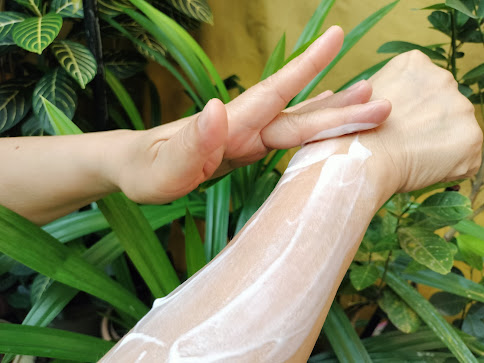The toxics watchdog group EcoWaste Coalition has cautioned the public against the use of sunscreen products that are being sold locally without the required market authorization.
Ever vigilant, the group conducted a market monitoring in Manila following the recent issuance by the Food and Drug Administration (FDA) of Advisory No. 2023-0519 reminding the public on the proper selection and use of sunscreen products.
“To combat the damaging effects of ultraviolet (UV) radiation in the body, safety measures are recommended to be practiced, including wearing sunglasses and protective clothing, and limiting sun exposure,” the FDA said.
Of the 12 brands of sunscreen products purchased by the group for P60 to P250 each from cosmetic retailers in Binondo and Quiapo, six are not notified with the agency as confirmed through the FDA Verification Portal.
As mentioned in the said FDA Advisory, overexposure to the sun may bring risks to health such as “premature skin aging, wrinkling and sagging, a compromised immune system, and skin cancer.”
“Knowing the need to protect and nurture our coral reefs, which have been ‘in constant and rapid decline,’ the Philippines should consider adopting an all-encompassing ‘Sunscreen Regulations,’ which, along with other conservation measures, can help in restoring the integrity and health of our marine ecosystems,” the EcoWaste Coalition pointed out.
Among these reef-toxic sunscreen ingredients are oxybenzone (benzophenone-3), octinoxate (octyl methoxycinnamate, ethylhexyl methoxycinnamate), octocrylene, 4-methyl-benzylidene camphor, and avobenzone (butyl methoxydibenzoylmethane) which are on the ingredients’ list of the sunscreen samples purchased by the EcoWaste Coalition.
The EcoWaste Coalition also cited the ban imposed by the state of Hawaii on sunscreen products containing oxybenzone and octinoxate, which took effect in January 2021. A bill pending at their Senate would further ban avobenzone and octocrylene as ingredients in such products.
1. Issue the necessary public health warning on unauthorized sunscreen products; and
2. Initiate regulatory measures that will prohibit “reef-toxic sunscreen.”
-- accumulate in tissues and induce bleaching, damage DNA, deform young and even kill corals;
-- impair growth and photosynthesis of green algae;
-- induce defects in young mussels;
-- decrease fish fertility and reproduction, and cause female characteristics in male fish;
-- damage immune and reproductive systems, and deform young sea urchins; and
-- can accumulate in the tissues of dolphins and be transferred to their offspring.
“Sun protection products that are meant to protect the skin from UV radiation should not pose health risks, as well as endanger the corals and the marine ecosystems as a whole,” the EcoWaste Coalition emphasized.






Comments